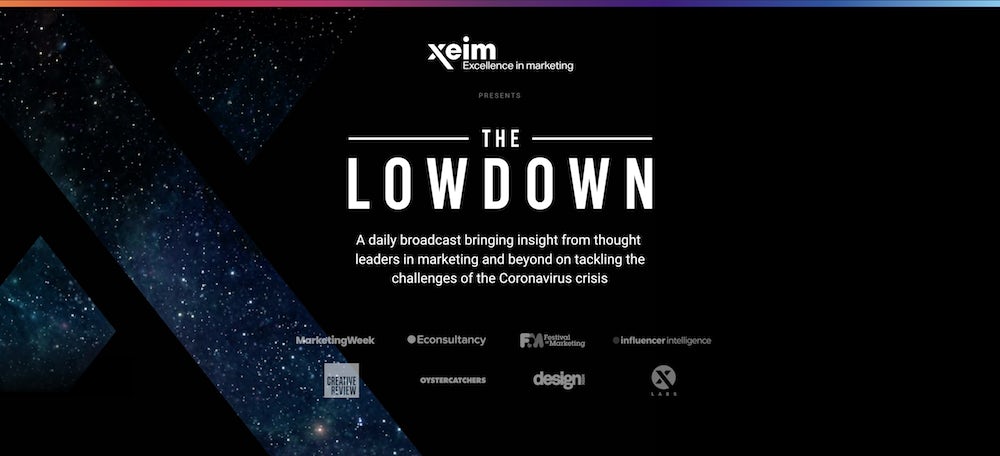Looking through the results from Econsultancy and Marketing Week’s most recent Covid-19 Business Impact Survey (the third iteration, 25th April), there are several stats that stood out to me when juxtaposed:
- Only 6% of respondents from large organisations (annual revenue more than £50 million) said they were investing more in marketing to ‘seize the opportunity’.
- Yet, 19% of large orgs are increasing or adding new spend for ‘strategic initiatives such as digital transformation or restructuring’.
- Fifty two percent of large orgs are cutting their marketing budgets to ‘live to fight another day’.
- Yet, 23% are increasing spend on technology and infrastructure.
And as further context for all of this, only 2.5% of large orgs are increasing spending on new hires. In fact, 81.9% are reducing spending here.
One of the main themes here could be a shift to digital, as many have predicted, particularly in the short term. Indeed, the survey also shows a new messaging emphasis on digital services (54% of large orgs) and more respondents cutting budgets for offline media (59%) than digital media (26%).
But that stat about new hires, though completely understandable and obvious, combined with relatively stable investment in digital makes me think that marketers are finally going to have to walk the walk of agile.
I’m using ‘agile’ quite loosely here (some readers may sigh), to mean moving quickly and easily, with focus on frequent re-assessment of project work.
In Econsultancy and Marketing Week’s survey, when respondents were asked to describe a specific innovation in their organisation over the past weeks, there were some answers that highlight, albeit vaguely, a new and pressing need to work in a more agile way:
- ‘Quicker decision making processes with smaller groups’
- ‘Everything is faster, clearer, simpler, more honest.’
- ‘Increased focus on only the necessary’
Where might this way of working be newly vital? Well, aside from quickly assessing changes to messaging, 55% of respondents from large orgs said the ‘shift online has exposed gaps in our customer experience’. That means marketers will thrive if they can work smoothly and quickly with digital specialists such as service design experts, dev teams, UX specialists, conversion experts, content designers and SEOs. And all of it with the blessing of management.
Do marketers have a broad enough knowledge base to be able to work in this way?
Furthermore, the rationale for automation becomes even stronger, tempered by the need to show results. Personalisation efforts, for example, must be measured ruthlessly and only pursued where they quickly impact the bottom line – no more lofty pursuit of one-to-one marketing if the ROI is not proven. As that one respondent wrote ‘focus only on the necessary’.
A note of caution, though, about rolling up your sleeves and getting on with it – respondents were asked how they would characterize their decision making in several areas, from financial decisions down to brand messaging. A whopping 27% of respondents from large orgs said that customer experience changes were ‘mostly instinct’.
The imperative may be there to refocus and even retrain in digital, but move too fast at your peril. As Econsultancy founder Ashley Friedlein wrote at the beginning of the year about humane tech, “The mantra of the last decade was “move fast and break things”. Perhaps now we need to work together and fix things?”
A positive note to end on – 30% of respondents from large orgs feel more valued than normal (compared to only 13% that feel less valued). This is perhaps the surest indicator that marketers have more work on their hands than ever.


Comments